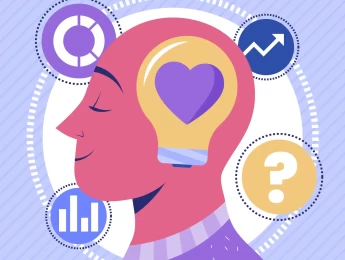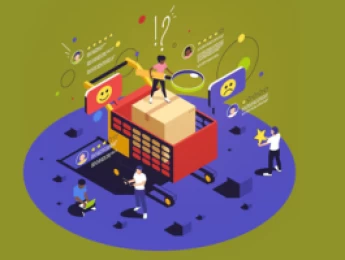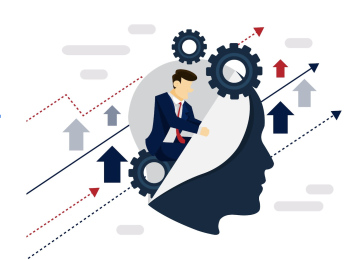Corporate emotional intelligence is critical to fostering a healthy and productive workplace environment. It involves the collective ability of an organisation to recognise, understand, and manage emotions effectively, both at an individual and group level.
Achieving corporate emotional intelligence necessitates cultivating a positive and empathetic workplace culture. This involves leadership that prioritises open communication and active listening and acknowledges the emotional well-being of employees.
By fostering a culture where emotional intelligence is valued, organisations can enhance teamwork, reduce conflict, and create a more supportive atmosphere, ultimately contributing to increased employee satisfaction, engagement, and overall organisational success.
Upon completion of this course, participants will be able to:
- Enhance interpersonal abilities, including fostering self-awareness, which involves recognising and comprehending one's emotions, moods, and drives and understanding their influence on others.
- Foster empathy, the capacity to comprehend others' emotional composition, and refine the skill of responding appropriately to their emotional reactions based on the situation.
- Cultivate interpersonal skills that reflect proficiency in managing relationships and constructing networks effectively.
- Build the skill set for effectively responding to feedback and constructive criticism and navigating adversity.
- Implement leadership strategies focused on collaboration and effective teamwork to achieve shared goals.
This course is designed for anyone responsible for managers or other professionals who require an in-depth knowledge of human behaviour to secure deals and negotiate with key stakeholders. It would be most beneficial for:
- Senior Managers
- Marketing Managers
- Business Analysts
- Business Owners
- Chief Operating officers
- Chief Marketing Officers
- Chief Executive Officers
- HR Professionals
- PR Managers
- Social Media Managers
This course uses a variety of adult learning styles to aid full understanding and comprehension. Participants will watch videos to understand what emotional intelligence actually is and why it’s essential in a working environment. They will review real-life situations from the past and critique how they handled them based on emotional intelligence metrics and discuss how they could have handled the situation differently if they had considered emotional intelligence.
They will then participate in interactive role-playing sessions with difficult conversations, mimicking customers, employees, and stakeholders, to determine what techniques and body language they should use to resolve the situation effectively.
Day 5 of each course is reserved for a Q&A session, which may occur off-site. For 10-day courses, this also applies to day 10
Section 1: What is Emotional Intelligence
- Understanding and managing personal emotions.
- Developing empathy and social awareness.
- Effective communication in emotional intelligence.
- Applying emotional intelligence in leadership.
- Emotional intelligence in interpersonal relationships.
- Recognising and managing stress through emotional intelligence.
- Cultivating resilience and adaptability.
- Applications of emotional intelligence in various professions.
Section 2: How to Understand Emotional Intelligence in the Workplace
- Recognising and navigating emotions at work.
- Developing emotional resilience in the workplace.
- Communication skills for emotional intelligence.
- Building positive workplace relationships.
- Emotional intelligence in decision-making.
- Emotional intelligence assessment tools.
- Developing self-awareness and self-regulation.
Section 3: Developing Your Emotional Skills
- Self-awareness and personal emotion management.
- Cultivating empathy and social skills.
- Effective communication through emotional intelligence.
- Leadership and emotional skills.
- Navigating interpersonal relationships.
- Stress management and emotional resilience.
- Decision-making with emotional intelligence.
- Measuring and tracking emotional intelligence progress.
Section 4: Applying Your Emotional Skills to A Situation
- Adapting communication to situational needs.
- Conflict resolution strategies with emotional intelligence.
- Managing stress and emotional challenges in real-time.
- Applying empathy in problem-solving.
- Leading with emotional intelligence in challenging situations.
- Enhancing team dynamics through emotional skills.
- Change and uncertainty with emotional competence.
Section 5: Becoming An Emotionally Intelligent Manager
- Emotionally intelligent decision-making in management.
- Communication skills for managers with emotional intelligence.
- Building and leading high-performing teams emotionally.
- Leading change with emotional intelligence.
- Cultivating a positive organisational culture.
- Empathy and social skills in emotional intelligence.
- Cultural considerations in emotional intelligence.
Section 6: Leadership Strategies Using Emotional Intelligence
- Motivating and inspiring teams with emotional intelligence.
- Enhancing collaboration and team dynamics.
- Aligning organisational goals with emotional intelligence.
- Ethical leadership practices in emotional intelligence.
- Performance management and feedback with emotional awareness.
- Creativity and innovation in leadership through emotional intelligence.
- Leading through uncertainty with emotional resilience.
Upon successful completion of this training course, delegates will be awarded a Holistique Training Certificate of Completion. For those who attend and complete the online training course, a Holistique Training e-Certificate will be provided.
Holistique Training Certificates are accredited by the British Assessment Council (BAC) and The CPD Certification Service (CPD), and are certified under ISO 9001, ISO 21001, and ISO 29993 standards.
CPD credits for this course are granted by our Certificates and will be reflected on the Holistique Training Certificate of Completion. In accordance with the standards of The CPD Certification Service, one CPD credit is awarded per hour of course attendance. A maximum of 50 CPD credits can be claimed for any single course we currently offer.
- Course Code MG2-176
- Course Format Classroom, Online,
- Duration 5 days














